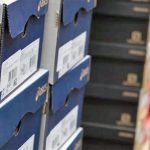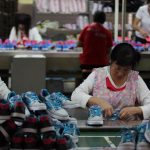Acushnet Holdings Corp. reduced its sales guidance for the year after seeing a drop in sales of Titleist golf balls in the second quarter and a steeper quarter-over-quarter decline in Titleist clubs.
On the positive side, earnings came in as planned and the company kept its earnings guidance for the year.
Under its updated guidance:
- Sales are expected to range of $1.55 billion to $1.57 billion in 2017, which is essentially flat to down 1.3 percent compared to sales of $1.57 billion in 2016. Previously, it expected sales in the range of $1.57 billion and $1.6 billion.
- On a currency-neutral basis, sales are now expected to be in the range of a decrease of 0.7 percent to an increase of 0.6 percent. Previously, Acushnet had expected currency-neutral sales to climb in the range of 1.8 percent to 3.7 percent in 2017;
- Adjusted EBITDA is still expected to be in the range of $220 million to $230 million in 2017. In 2016, adjusted EBITDA was $228.4 million.
“We are encouraged by what we continue to view as improving structural stability of the golf industry and believe that the broad rationalization is a positive for the commerce of golf,” said Wally Uihlein, Acushnet’s president and CEO. “Near term, the industry is experiencing the effects of the US retail correction as well as the impact of unfavorable weather on rounds played, but we believe that the longer term forecast remains bright. The dedicated golfer has been Acushnet’s primary focus and our proven strategy to address their needs is the key to our ongoing success. We remain optimistic about the future and our ability to strengthen our market positions over time.”
In the second quarter ended June 30, consolidated sales slumped 7.6 percent, or by 6.6 percent on a constant-currency basis, to $428 million.
Acushnet said several significant factors, primarily in the U.S., had a negative impact on the business this quarter. These factors include the ongoing effects of the reduced U.S. store count and retail consolidation, unfavorable weather conditions which negatively impacted rounds of play as well as golf club fitting and trial engagements, and promotional activity by competitors that impacted the golf ball category.
As a result, consolidated net sales in the U.S. decreased 8.5 percent in the quarter, to $224.2 million. Outside the U.S., sales were down 6.6 percent and off 4.5 percent on a constant-currency basis. On a currency-neutral basis, Korea grew 7.5 percent but that was offset by declines in Japan, down 13.4 percent, and EMEA, 3.4 percent.
Among product categories, Titleist golf balls’ sales decreased 6.6 percent, or 5.6 percent on a currency-neutral basis, to $155 million. The decline was the result of a sales volume decline in both the ProV1 franchise and the performance models, the latter of which are in their second year of their two-year product life cycle.
In the first quarter, Titleist golf balls had seen growth of 2.9 percent overall and 3.1 percent on a currency-neutral basis as a result of strong demand for the new Pro V1 and Pro V1x balls launched in the period.
Sales of Titleist golf clubs in the second quarter fell 21.1 percent overall or 20.3 percent on a currency-neutral basis to $93.3 million. The reduction was due to lower sales volumes, primarily in the iron series, Scotty Cameron Select putters and Vokey Design wedges, all of which are in the second year of their two-year product life cycle. This decrease was partially offset by an increase in average selling prices across all product categories, in particular the new 917 model drivers and fairways.
In the first quarter, Titleist golf clubs saw a decrease of 11.7 percent overall and 10.8 percent on a currency-neutral basis.
Titleist golf gear in the second quarter saw a 5.6 percent increase in net sales and 6.3 percent advance on a constant-currency basis, to $47.3 million. The increase was primarily due to higher average selling prices across all categories of the gear business.
FootJoy golf wear’s sales were down 5.8 percent to $112.5 million and were off 4.1 percent on a currency-neutral basis. The drop was primarily due to a sales volume decline in the footwear and glove categories.
Net income in the second quarter improved 22 percent to $33 million, primarily due to lower interest expense and lower other expense, partially offset by lower income from operations.
The bottom line benefited from a reduction in interest expense to $4.9 million from $14.6 million. The company reduced debt with proceeds from its October 2016 initial public offering.
Gross margins eroded to 47.9 percent from 48.6 percent a year ago. SG&A expenses were reduced 4 percent to $151.8 million but still was up as a percent of sales to 35.5 percent from 34.1 percent.
Adjusted EBITDA was $71.8 million, down 13.5 percent year over year. Adjusted EBITDA margin was 16.8 percent for the second quarter versus 17.9 percent for the prior year period.
David Maher, Acushnet COO, said, “The U.S. retail channel correction and the impact of weather on rounds and fittings have been near term realities affecting the golf industry and our business. Acushnet associates are executing well while navigating these headwinds. The growing strength of the ProV1 franchise, Titleist gear and the success of the FootJoy Pro/SL golf shoes are great examples of how we continue to fortify our positions on multiple fronts as we work closely with our trade partners to deliver value added products to dedicated golfers. We are excited about our upcoming new product introductions and we are looking forward to building upon our brand momentum in the back half of the year.”
Photos courtesy Titleist
















